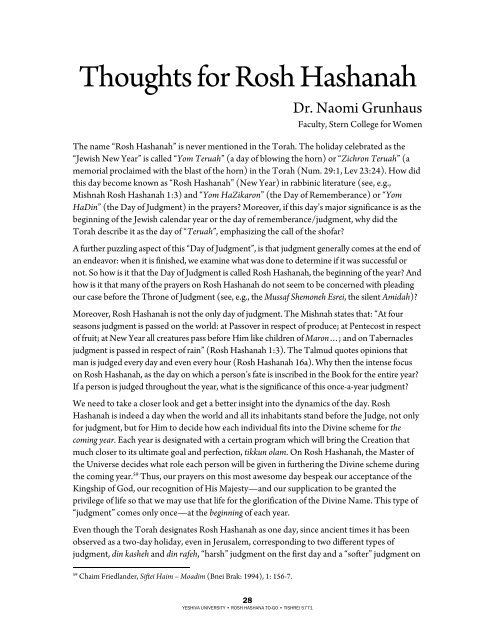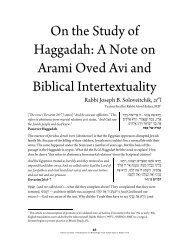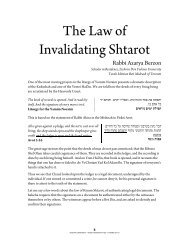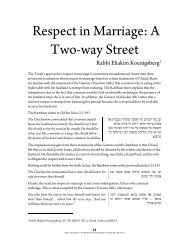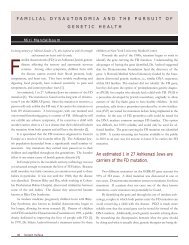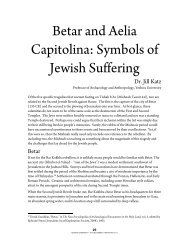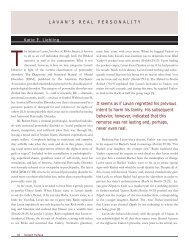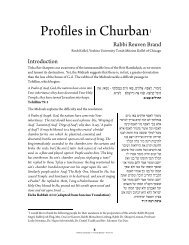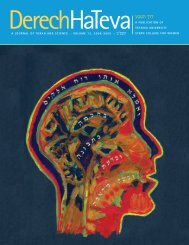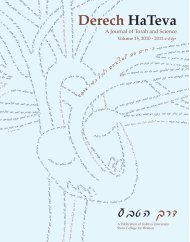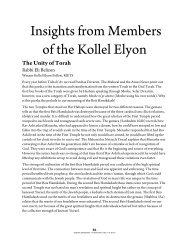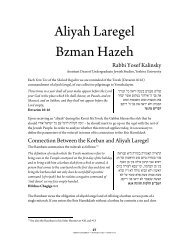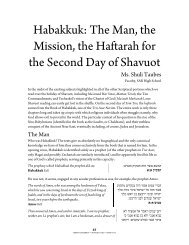YESHIVA UNIVERSITY • ROSH HASHANA TO-GO ... - YUTorah.org
YESHIVA UNIVERSITY • ROSH HASHANA TO-GO ... - YUTorah.org
YESHIVA UNIVERSITY • ROSH HASHANA TO-GO ... - YUTorah.org
Create successful ePaper yourself
Turn your PDF publications into a flip-book with our unique Google optimized e-Paper software.
Thoughts for Rosh Hashanah<br />
28<br />
<strong>YESHIVA</strong> <strong>UNIVERSITY</strong> <strong>•</strong> <strong>ROSH</strong> <strong>HASHANA</strong> <strong>TO</strong>-<strong>GO</strong> <strong>•</strong> TISHREI 5771<br />
Dr. Naomi Grunhaus<br />
Faculty, Stern College for Women<br />
The name “Rosh Hashanah” is never mentioned in the Torah. The holiday celebrated as the<br />
“Jewish New Year” is called “Yom Teruah” (a day of blowing the horn) or “Zichron Teruah” (a<br />
memorial proclaimed with the blast of the horn) in the Torah (Num. 29:1, Lev 23:24). How did<br />
this day become known as “Rosh Hashanah” (New Year) in rabbinic literature (see, e.g.,<br />
Mishnah Rosh Hashanah 1:3) and “Yom HaZikaron” (the Day of Rememberance) or “Yom<br />
HaDin” (the Day of Judgment) in the prayers? Moreover, if this day’s major significance is as the<br />
beginning of the Jewish calendar year or the day of rememberance/judgment, why did the<br />
Torah describe it as the day of “Teruah”, emphasizing the call of the shofar?<br />
A further puzzling aspect of this “Day of Judgment”, is that judgment generally comes at the end of<br />
an endeavor: when it is finished, we examine what was done to determine if it was successful or<br />
not. So how is it that the Day of Judgment is called Rosh Hashanah, the beginning of the year? And<br />
how is it that many of the prayers on Rosh Hashanah do not seem to be concerned with pleading<br />
our case before the Throne of Judgment (see, e.g., the Mussaf Shemoneh Esrei, the silent Amidah)?<br />
Moreover, Rosh Hashanah is not the only day of judgment. The Mishnah states that: “At four<br />
seasons judgment is passed on the world: at Passover in respect of produce; at Pentecost in respect<br />
of fruit; at New Year all creatures pass before Him like children of Maron…; and on Tabernacles<br />
judgment is passed in respect of rain” (Rosh Hashanah 1:3). The Talmud quotes opinions that<br />
man is judged every day and even every hour (Rosh Hashanah 16a). Why then the intense focus<br />
on Rosh Hashanah, as the day on which a person’s fate is inscribed in the Book for the entire year?<br />
If a person is judged throughout the year, what is the significance of this once-a-year judgment?<br />
We need to take a closer look and get a better insight into the dynamics of the day. Rosh<br />
Hashanah is indeed a day when the world and all its inhabitants stand before the Judge, not only<br />
for judgment, but for Him to decide how each individual fits into the Divine scheme for the<br />
coming year. Each year is designated with a certain program which will bring the Creation that<br />
much closer to its ultimate goal and perfection, tikkun olam. On Rosh Hashanah, the Master of<br />
the Universe decides what role each person will be given in furthering the Divine scheme during<br />
the coming year. 59 Thus, our prayers on this most awesome day bespeak our acceptance of the<br />
Kingship of God, our recognition of His Majesty—and our supplication to be granted the<br />
privilege of life so that we may use that life for the glorification of the Divine Name. This type of<br />
“judgment” comes only once—at the beginning of each year.<br />
Even though the Torah designates Rosh Hashanah as one day, since ancient times it has been<br />
observed as a two-day holiday, even in Jerusalem, corresponding to two different types of<br />
judgment, din kasheh and din rafeh, “harsh” judgment on the first day and a “softer” judgment on<br />
59 Chaim Friedlander, Siftei Haim – Moadim (Bnei Brak: 1994), 1: 156-7.


